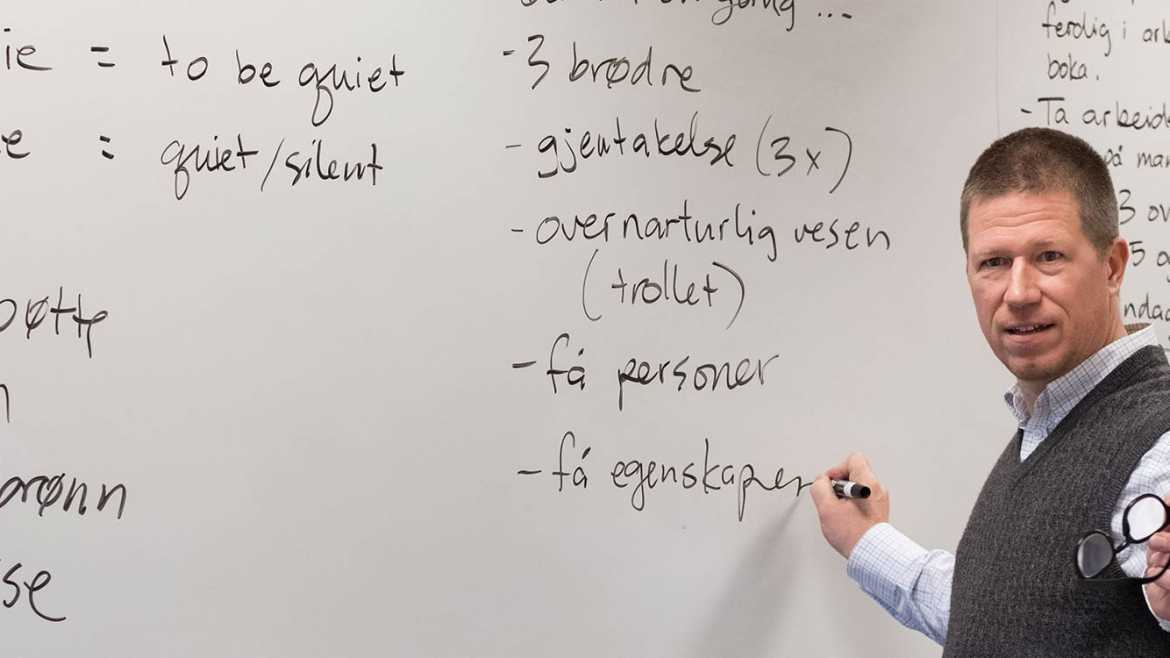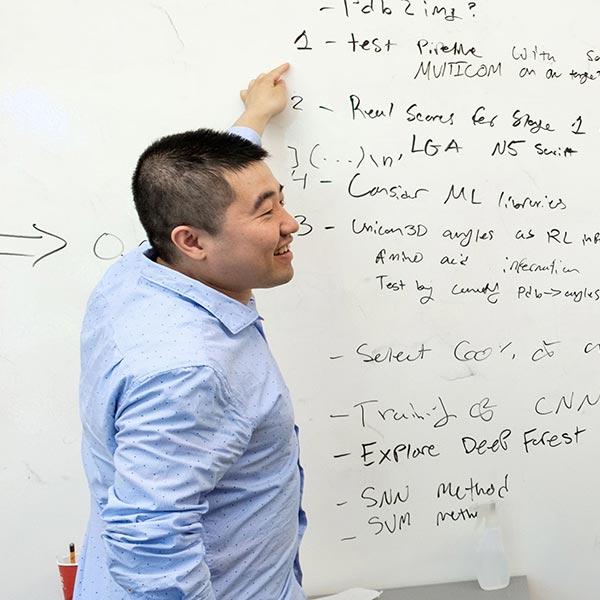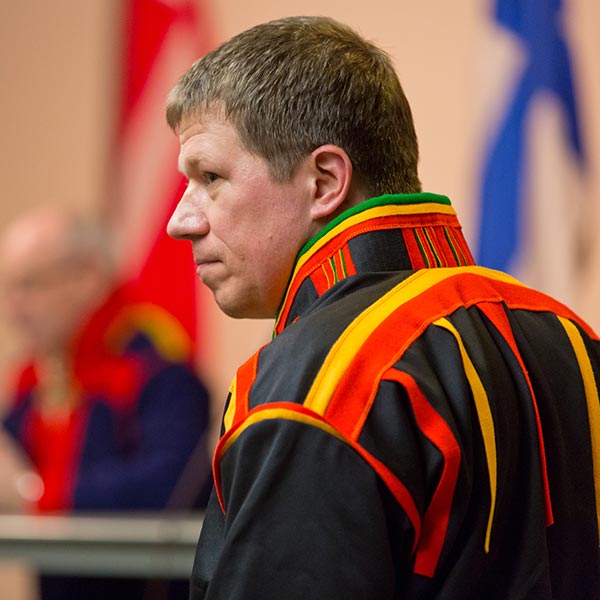Discovery
Troy Storfjell’s heritage fuels his academic passion.
Storfjell is a member of the Sámi community, the only indigenous group in Norway, and a group that has long been discriminated against in Norwegian culture. Efforts were undertaken in the mid-1800s to exterminate their language and way of life. Children were taught in schools that Sámi — depicted back then as small, scrawny and sickly — were inferior. This socially constructed idea of race was taught at Norwegian universities until the 1940s, Storfjell said.
It’s why Storfjell, who passes as white in the United States, nevertheless experiences the sting of systemic oppression when in Norway.
“It’s difficult for me, on an emotional level, to identify as white,” said Storfjell, who has spent significant time in both countries. In Norway, he said, “I always knew I was Sámi.”
This experience informed his passion project: a new Native American and Indigenous Studies (NAIS) program and minor at Pacific Lutheran University, set to launch in fall 2018. In fact, the opportunity to create such a program was part of what convinced Storfjell — now the chair of the school’s Nordic Studies program — to work at PLU in the first place.
Storfjell was working as an instructor of Scandinavian studies at the University of Colorado-Boulder when he interviewed at PLU in 2005. During a conversation with Janet Rasmussen, then the director of the Wang Center for Global Education, Storfjell broached the possibility of piloting an NAIS program and minor at the university.
“She was really receptive to it,” Storfjell said. “That’s one of the reasons I decided to accept the job offer to come out here.”
Yet it took a while to launch the effort in earnest. Rasmussen left for another job. Nobody else knew about their conversation. It wasn’t until several years later that Storfjell, now an associate professor of Norwegian and Scandinavian studies, finally got approval to move forward with the program. That green light helped convince him to stay at PLU despite a job offer elsewhere.
There was much to do. Storfjell and his colleagues in the NAIS working group — Suzanne Crawford O’Brien (Religion), David Huelsbeck (Anthropology), Nicole Juliano (The Diversity Center) and Carmiña Palerm (Languages and Literatures: Hispanic Studies) — began having conversations with many indigenous groups in the region, including members of the Puyallup, Muckleshoot and Steilacoom tribes, and the Nisqually Campus of Northwest Indian College, to better inform the program’s curriculum.
Developing trust and “doing it right” were paramount for Storfjell and his colleagues; they wanted to dedicate the time that such an important program deserves. “It was a long process,” he said.
Since he was a child, Storfjell has maintained a steady connection to his heritage. “I’ve been back and forth, in and out, of my indigenous community,” he said.
He bounced between the U.S. and Norway throughout most of his early childhood, and spent most of his late childhood in the U.S. before moving back to Norway as a young adult. Storfjell also served as a guest researcher at the University of Tromsø in 2011 and 2012.
When Storfjell first arrived at PLU in 2005, Nordic studies courses were scant on Sámi teachings; he now teaches a Nordic studies course titled “Sámi Culture in Global Indigenous Contexts.” He has welcomed a Sámi indigenous student every time he has taught the class. That course will count toward the NAIS minor.
The program is interdisciplinary, so most of the courses that count toward the 24-credit minor are offered by other departments (such as History, Religion and Anthropology). But Storfjell and his colleagues did create a few new courses, including a two-part series called “Interconnections” that aims to provide students and faculty a space to discuss “progress, challenges and the intersection of indigenous approaches and the university experience.”
The program as a whole will teach from “a global indigenous focus centered in local and regional contexts.”
“This is not a program where people go to learn about indigenous people, though they will,” Storfjell said. “This is a program where we learn from indigenous peoples, and with indigenous peoples, and in indigenous ways, intellectual and philosophical.”
Storfjell is particularly excited to introduce two 100-level courses in Southern Lushootseed, the language spoken by several Native American tribes indigenous to the Pacific Northwest. And Storfjell himself will teach “Introduction to Native American and Indigenous Studies” in spring 2019.
“One of the things that we hope this program will do is give space for indigenous students to feel a little more at home,” Storfjell said. “But that doesn’t mean that we want this program to only be for indigenous students.”
For example, Storfjell said, the program could appeal to nursing students who might someday work with indigenous populations, or to business students who might someday work with nonprofits or indigenous institutions. And, he said, “it’s still beneficial for non-indigenous students to have this exposure for personal and intellectual growth.”
Perhaps most importantly, the program will make PLU a more welcoming place for current and prospective students of indigenous heritage. Storfjell notes that “there are plenty (of indigenous people) right here in Parkland, yet people aren’t even aware of it.”
Many more will be, if Storfjell and his colleagues have anything to say about it.






